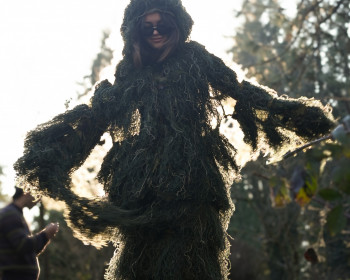(Portland, Ore.)—Lewis & Clark Law School’s Environmental Law Program ranks No. 1 in U.S. News & World Report’s 2009 annual rankings of law schools. This is the eighth time that the environmental law program has taken top honors in this field since 1997. The ranking was produced through a survey of faculty from across the country teaching in the environmental law field.
“We’re thrilled to receive this honor once again,” said Robert Klonoff, dean of the law school. “Our faculty and students offer the very best to the public and private sectors, as well as the judiciary, in the way of innovative environmental policies and programs to address one of the most critical and pressing issues of our time.”
Lewis & Clark Law School has served as a leader in the field of environmental law since it founded the program in 1970, the first of its kind in the country. In addition to its environmental law curriculum, the law school offers students hands-on opportunities to put their coursework into practice through one of its three clinical programs: the Pacific Environmental Advocacy Center (PEAC), International Environmental Law Project, and Animal Law Clinic.
Beyond the educational value to students, the clinics develop persuasive legal strategies to affect environmental policies and how federal, state and local agencies carry them out. PEAC, named the “winningest” clinic in the country in 2007 by National Jurist, provides law students the opportunity to work on important environmental cases.
“Before coming to Lewis & Clark, I hardly knew anyone outside my local environmental community,” said Katie Strong, a law student who, through PEAC legal action, helped successfully argue for the reinstatement of Endangered Species Act protections for the Sonoran eagle population. “Now, I have connections with attorneys and environmental advocates across the country.”
The highly competitive environmental and animal law moot court programs offer students the opportunity to practice legal research skills, write briefs, and deliver oral arguments. Lewis & Clark moot court teams have won the National Center for Animal Law Moot Court Championship two years in a row and the Pace National Environmental Moot Court Championship five times in the past 15 years.
The law school also boasts seven environmental organizations or student-driven projects, such the Public Interest Law Project and the Northwest Environmental Defense Center, which are designed to enrich students’ educational experience and serve the greater community.
“The opportunities we offer outside the classroom are incredibly valuable,” said Janice Weis, associate dean and director of the environmental and natural resources law program. “Students are learning from each other, working closely with faculty on real cases, and engaging Portland organizations on projects that make this city a better place. Collectively, these experiences make for an outstanding educational program and a tight-knit community.”
In addition to the first place finish in the environmental law field, the legal writing program ranked 18, the intellectual property program ranked 22, and the law school jumped from 82 to 73 out of 195 American Bar Association-approved law schools in the country.

